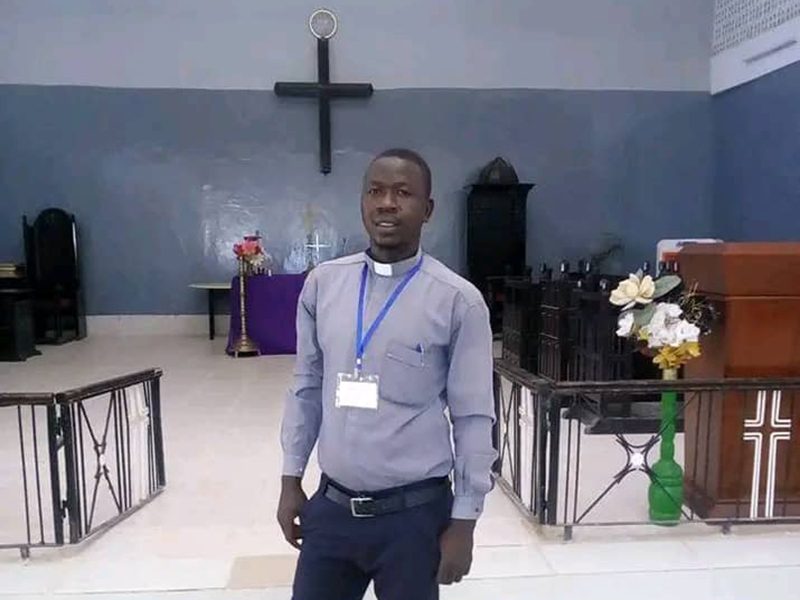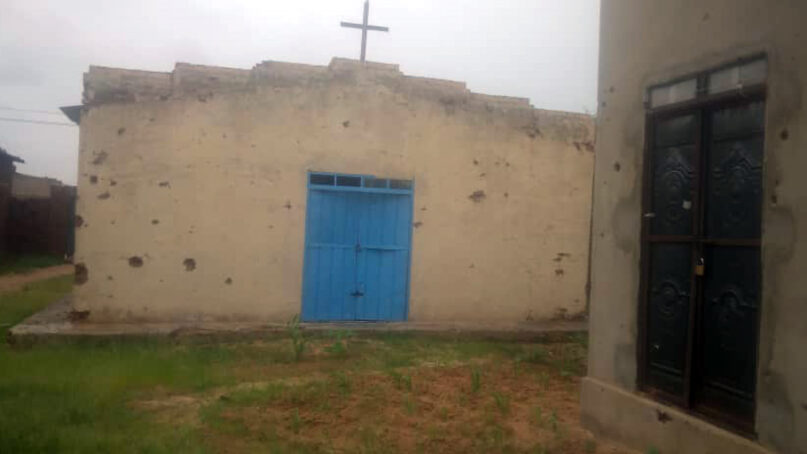
NAIROBI, Kenya (RNS) — A priest of the Anglican Church of Sudan who stayed in El-Fasher, the besieged capital of North Darfur, to serve Christians remaining there is now homeless after paramilitary violence forced him out of his church.
The Rev. Daramali Abudigin, 44, kept his St. Mathew Episcopal church open, even as bombs, stray bullets and hunger killed members of his flock. Recently, he found himself assisting 130 to 150 families from different Christian denominations in the city after all other clerics fled the intensified fighting, he said.
But on Sept. 16, the priest was also forced to flee his church as an attack by armed militiamen from Rapid Support Forces killed two people and badly injured several others. In May, another attack on the church left five people dead.
“We are out of the church — we are now homeless,” Abudigin told RNS in a WhatsApp call Sept. 23. “… We are now living in an open and empty space in the Abu Shouk area, with no house or any form of shelter. We have no place to go.”
The priest is with 45 others — 17 children, 17 women and 11 men — at a temporary settlement on the outskirts of El-Fasher. He said he has been unable to assemble the people for prayers or services.
“For two days, we have been drinking water only to stay alive,” said the priest, who is the father of three boys and originally from the Nuba Mountains in South Kordofan, Sudan.

St. Mathew Church in El-Fasher, North Darfur, Sudan. (Courtesy photo)
His wife and sons have been in El-Obeid, the capital of North Kordofan state, since the Sudanese Armed Forces, the country’s military, ended another siege of the city by the paramilitary group last year. Yet, the situation in El-Obeid remains precarious as another battle for control of the “strategic city”could break out at any time, he said.
Abudigin said his greatest concern is for the women and children now living out in the open — without food and shelter — even as heavy rains pound the region every day.
“I fear they can be killed in the crossfire or random shooting,” said the priest, who has kept his phone on to communicate with the outside world. He has been recharging its battery through solar panel power.
El-Fasher, the capital of North Darfur, one of the five states in the Darfur region, has been under a blockade by RSF since April last year. The group imposed the blockade after local militia declared allegiance to the SAF.
The army and the paramilitary have fought for control of the country since April 2023. In March, the battle shifted to Darfur, the paramilitary’s base in the west of the country, after the army pushed RSF out of Sudan’s capital, Khartoum, and its surrounding areas.
On Friday (Sept. 19), an RSF drone strike killed 85 people worshipping in a mosque in El-Fasher. The strike hit the mosque and nearby homes, killing at least 11 children and injuring many more, according to the United Nations.
“For more than 500 days, children in El-Fasher have endured a relentless siege by the Rapid Support Forces,” said Catherine Russell, executive director of the United Nations Children’s Fund, in a statement Sunday (Sept. 21). “The children are trapped by violence with little access to food, clean water and health care, and forced to witness horrors no child should ever see.”
As fighting makes most areas unreachable and warring factions block access, estimates of the death toll in the more than two-year war have varied. Conservative estimates say tens of thousands have been killed, while some agencies place the figure at more than 150,000 dead.
The war has displaced nearly 12 million people in Sudan, and about 4 million have entered neighboring countries as refugees, according to the UN. A cholera outbreak exacerbated an already dire situation in regions like Darfur, where a famine was declared in refugee camps near El-Fasher last year.
Faith leaders, diplomats and peace activists have stressed that dialogue could end the war, largely viewed as reckless and unnecessary.
“The suffering of the Sudanese people compels urgent, united action from Africa’s religious leaders,” said Francis Kuria Kagema, general secretary of the African Council of Religious Leaders, in a declaration from Nairobi. The council last month promised to engage the key principals of the conflict, Sudan army chief Abdel Fattah al-Burhan and RSF head Mohamed Hamdan Dagalo, known as Hemedti, with the goal of moving toward peace.
And on Sept. 12, foreign ministers from the United States, Egypt, Saudi Arabia and the United Arab Emirates called for a three-month humanitarian truce to enable aid to reach all parts of the country. They are seeking a permanent ceasefire to follow, and a nine-month transition process toward a civilian government in Sudan.
“We keep hoping things will get better, at least, so that the people can get food, shelter and medicines,” Abudigin said.
